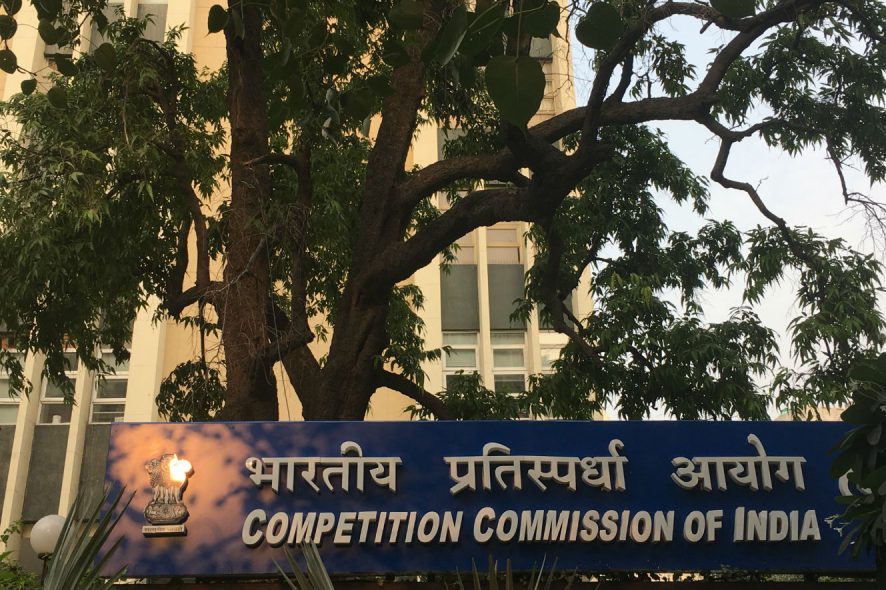The Competition Act, 2002 (the Act) is a giant step towards reformation of anti-competitive policies over its precursor, the Monopolistic and  Restrictive Trade Practice Act, 1969 (MRTP). Becoming fully operational in 2009, the Competition Commission of India (CCI) in these 9 years has witnessed varying kinds of cases coming up related to issues of economic concentration and unfair trade, with its jurisdiction extending to a wide area of e-commerce cases involving both online and offline transactions.[1] It has brought about many changes and has had wide-ranging effects on the business sector, both private and public.
Restrictive Trade Practice Act, 1969 (MRTP). Becoming fully operational in 2009, the Competition Commission of India (CCI) in these 9 years has witnessed varying kinds of cases coming up related to issues of economic concentration and unfair trade, with its jurisdiction extending to a wide area of e-commerce cases involving both online and offline transactions.[1] It has brought about many changes and has had wide-ranging effects on the business sector, both private and public.
Extraterritorial jurisdiction: To infinity and beyond
The Act incorporates extraterritorial jurisdiction as under Section 32 of the Act which is based on the “effects doctrine”.[2] The absence of such provision under the MRTP Act barred the scope of action against any anti-competitive conduct involving imports, and foreign cartels in particular.[3] The Act has categorically removed this restriction, thus having an enabling effect and giving CCI the power to take action against any foreign business entity indulging in any sorts of anti-competitive behaviour.
However, its application remains contentious as far as the turnaround time for the approval of combinations and quick decision making is concerned. There exist apprehensions if the CCI is logistically equipped sufficiently to strike a chord between the international competition law developments and domestic legislation and responsibilities. If the law does have extraterritorial reach and a domestic court or tribunal has jurisdiction to hear the case, practical problems of enforcement with respect to the obtaining  of evidence and the implementation of any fines or penalties are likely to arise.
of evidence and the implementation of any fines or penalties are likely to arise.
The CCI, despite being well empowered has not been successful in laying down any procedures or formulating any regulations to govern the time frame to act in matters falling outside India’s territorial jurisdiction. In today’s scenario, corporate dealing involving MNC’s often result in the creation of different synergies within different countries and hence are likely to give rise to conflicting opinions about the issue within competition regulators having jurisdiction over the case involved.[4] Considering the paucity of the jurisprudence on this issue, the stance of the CCI in the future matters would be of huge relevance in the determination of any well-settled position.
Penalising the guilt: The is and the ought
CCI imposes a plethora of penalties[5] for the reasons enshrined in the section and in Part VI of the act with the entire funds being credited to the Consolidated Fund of India.[6] In its first investigation, CCI had imposed a penalty of Rs 1 lakh on movie producers colluding against multiplexes.[7] However, recent trends show that former was nominal imposition for having an amicable start with penalties being imposed in huge proportions in the times to come. For example, the CCI did impose an equally hefty penalty of Rs 2500 crores in Automobiles case[8], Rs 1700 crores in the case against Maharashtra State Power Generation Company[9], etc.
In the last 9 years, the CCI has taken a different turn, recently approving the first ever leniency application for a cartel member because the partner of the firm confessed to the anti-competitive practices which prompted the CCI to reduce the fine by 75%. It recently notified the Competition Commission of India Lesser Penalty Amendment Regulations, 2017, stating that a confession about Cartelisation (if witness was complicit) will provide them with an amnesty/leniency from the imposed liability. This depicts that CCI is going through a streamlined approach adopting the propensity to charge more proportionally.
In Iridium India Telecom v. Motorola Inc.[10], the Supreme Court held that companies can be prosecuted for offences involving mens rea with the intent and direction provided by the directors and promoters being attributable to the company. However, under the Act there exists a criminal sanction only for non-compliance of the order passed[11] with no specific provision of such liability for anti-competitive practices. Keeping in view, these aspects the Act needs amendment for incorporation of criminal sanction to maintain the deterrence in conformity with Section 6 of the Act.
Appeals of CCI orders: Hear Hear
The increasing number of appeals to High Courts against the Competition Appellate Tribunal (COMPAT), the Competition Statutory Appellate Tribunal has not be welcomed positively since it leads to the overlapping of powers and multiplicity of efforts. In State of M.P. v. Nerbudda Valley Refrigerated Products Co. (P) Ltd.[12], the Supreme Court held that any writ petition cannot be accepted by any High Court if a statutory appellate mechanism exists. On the contrary, Paradip Port Trust v. Sales Tax Officer[13] laid down that no bar on such appeal to the High Court exists when there is any violation or non-compliance with the principles of natural justice or exceeding of jurisdictional limits by Compat, even if there exists any statutory appeal mechanism.
In 2013, the position was finally settled that such writ petitions filed against the CCI order are procedurally unfair as they lead to a direct appeal to High Court by surpassing COMPAT’s authority. In the Automobiles case[14] between Mahindra and Tata Motors the Court held the order should be challenged before COMPAT since it is functional. High Courts are not to interfere at this stage unless it is found to be a case of gross transgression of the jurisdiction or results in the breach of natural justice principles.[15] Otherwise, constitutionally, Article 226 is of a discretionary nature granting power to exercise the same to the High Court. Since most of the cases of appeal deal with statutory authority such conflict of jurisdiction requires a settled position of law.
Case closed or not
According to the Act, the Commission on the receipt of a complaint has to direct the initiation of an investigation into the allegations, based on which the Director General is supposed to submit a report. Though the Act explicitly grants CCI the authority to direct the Director General to investigate and close the matter if he detects no contravention and furthers the investigation, it does not provide for closure of the case even if the Director General finds any contravention with the Act during the investigation. Section 26 of the Act fails to provide for a situation where the Commission may not agree with the Director General’s findings after it finds a contravention, often nullifying the power of the parties to appeal to the higher authorities such as to the COMPAT or to the Supreme Court after the case has been struck down by the Commission.
Such a lacuna inherent in the Act has often led to a dispute about the powers granted under the Act to CCI and the authority and binding value of the Director General’s report. This contention was laid to rest in Gulf Oil Corp. Ltd. v. CCI[16] where the Court held that Director General’s report merely has a recommendatory nature and the CCI need not proceed under Section 26(7) in every case where it disagrees with the Director General’s report. There have been situations where cases have been closed by the Commission despite Director General stating otherwise, but this uncertainty can be resolved only when there is either a legislative amendment or by way of some purposive interpretation the judiciary.
Lag due to the lack: Recommendation for way ahead
The competition law requires multi-disciplinary inputs in its implementation and enforcement. The data reflects the inability of CCI to keep pace with the new market players due to technological advancements, insufficiency of data and shortage in staff and panel experts, thus affecting the process of expediting investigation and adjudication of matters. The initial few years witnessed a trend of delay in the disposal of cases due to lacking number of officials requiring appointment of experts from legal and economic backgrounds at different levels to help handle these cases. Resultantly, the performance has improved with respect to the disposal of case with the average disposal rate of merger control cases reducing from around 16.5 days in 2011-2012 to around 26.4 days in 2015-2016.[17]
To deal with the existing laxity, greater man power is needed which is presently built up through deputations and imports of officers from other departments. Thus a specialised task force would be more advantageous that this deputation based enforcement since such enforcement needs the expertise and sufficiency of manpower oriented to handle anti-competitive wrongdoings to move ahead. Thus, we recommend instituting a separate cadre for the CCI through the Indian competition services for the better and speedier addressing of the matters at hand. Under this service, we recommend to institutionalise the existing task force which would remove arbitrariness in the existing subjective standards.
The reason why CCI lags behind is because of its inability to keep pace with the latest advancements. An institutionalised workforce would address these concerns by providing a better equipped organisation structure that would facilitate in disposal mechanism, etc. The Indian competition regime has come a long way in the fields analysed above and it still has a long way to go to maintain the “fairplay” in Indian markets.
————-
* IIIrd year students, BA, LLB (Hons.), Batch of 2021, National Law University, Delhi.
[1] Fairplay, Quarterly newsletter of CCI (2016) p. 19.
[2] Kartik Maheshwari, Simonc Reis Extraterritorial Application of the Competition Act and its Impact, (2012) CompLR 144, 148.
[3] Haridas Exports v. All India Float Glass Manufacturer’s Assn., (2002) 6 SCC 600 : AIR 2002 SC 2728.
[4] Haridas Exports v. All India Float Glass Manufacturer’s Assn., (2002) 6 SCC 600 : AIR 2002 SC 2728.
[5] Competition Act, 2002, S. 27.
[6] Competition Act, 2002, S. 47.
[7] Film & Television Producers Guild of India v. Multiplex Assn. of India, 2013 SCC OnLine CCI 89.
[8] CCI, Shamsher Kataria v. Honda Shiel Gas India Ltd., 2015 SCC OnLine CCI 114 : [2015] CCI 133
[9] Maharashtra State Power Generation Co. Ltd. v. Mahanadi Coalfields Ltd., 2017 SCC OnLine CCI 11.
[11] Competition Act, 2002, Ss. 42, 48.
[14] CCI, (n. 8)
[15] State of U.P. v. Mohd. Nooh, AIR 1958 SC 86.
[16] 2013 SCC OnLine Comp AT 132 : [2013] Comp AT 122.
[17] Competition Commission of India, Annual Report 2015 (2016), p. 50.







cci has not focussed decaying telecom sector at the cost one company trying to dominate by eliminating competitors with unfair trade practices. petroleum sector is also not looked in to properly. fixing of prices and the way in which the money is spent ravishingly by these public sector industries and the way in which prices are fixed are all un imaginable.